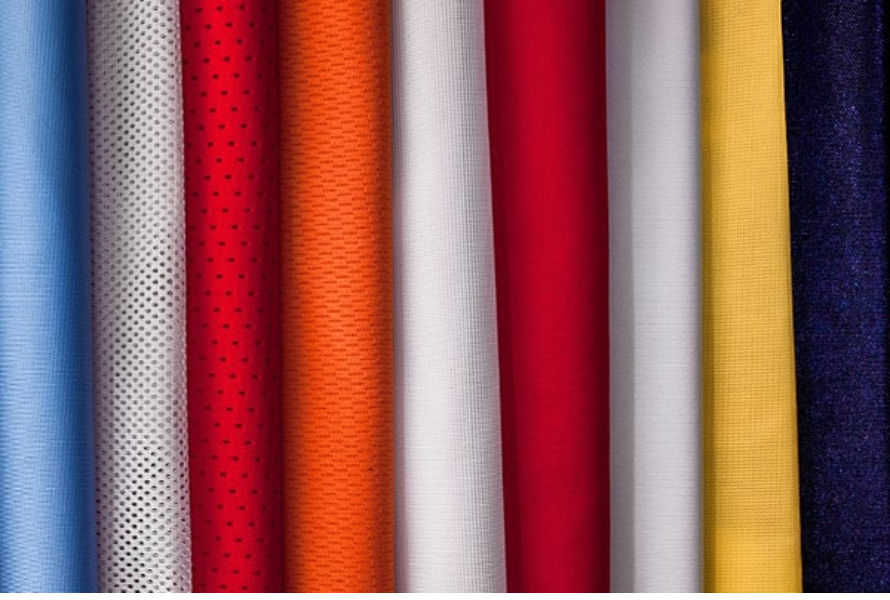Synthetic materials have become almost the norm in our everyday lives because they influence a lot of aspects. In this article, let us take a closer look at how these materials have evolved and how they have made a difference in our lives in such an amazing manner.
1. What Is Synthetic Material?
Synthetic materials are artificial substances created from chemical compounds, often used as substitutes for natural materials like wood, cotton, and leather. These can be applied in almost all areas of our lives including, dressing, packaging of foods, and construction…
These materials can not only replace the conventional materials that are utilized in production but also contain enhanced attributes such as strength, flexibility, and manufacturing cost. Common examples of synthetic materials include:
- Plastics: polyethylene, polypropylene, polyvinyl chloride,...
- Synthetic fabrics: polyester, nylon, acrylic,...
- Rubbers and elastomers: synthetic rubber, silicone,...
- Ceramics and advanced composites.
- Synthetic fibers: carbon fiber, aramid fiber,..
- Engineered wood products: plywood, particleboard,...
Read more: Different types of synthetic materials

Synthetic materials are human-made products that are made by chemical processes for use in place of natural products.
2. Positive Impacts Of Synthetic Material
Everyone would agree with the fact that now synthetic materials seeped into almost every aspect of our existence and affect several sectors of our lives. Human synthesized products such as those derived from complex chemical reactions to produce various products have led to the formulation of many positives over natural products.
Here are some of the positive impacts of synthetic materials:
- Durability and Longevity: Most of the synthetic materials used in making clothes like plastics, nylon, and polyester materials are harder in nature and also have longer durability than fabrics from natural fibers.
- Cost-Effectiveness: Synthetic materials are normally cheaper to make and fabricate compared to natural counterparts as they don’t entail the use of pricey raw materials or sophisticated production procedures.
- Versatility and Design Flexibility: Since synthetic materials can be created purposefully, this material can be created purposefully with a preconceived plan hence making product ideas more innovative and flexible uses of the new flexible material.
- Lightweight and Portable: Synthetic materials in general are light in weight. This is advantageous for some applications like the clothing, electronics, and automobile industries.
- Consistent Quality and Availability: The use of synthetic materials offers the advantage of a controlled process with much higher reproducibility and not being reliant on seasonal availability as natural materials might be.
- Enabling Medical Advancements: Synthetic materials have played a crucial role in creating medical devices, aids, and replacements that have enhanced the healing process and well-being of a patient.
- Resource Conservation: In certain instances, synthetic materials can contribute to the preservation of limited natural resources given that they can serve as perfect substitutes for natural resources.
- Safer Substitute Solutions: Some synthetic materials are capable of replacing dangerous and toxic substances like asbestos, lead, and mercury. Safer materials are now an important aspect that helps to reduce the harm caused to human beings and the environment.
- Improved Energy Efficiency: Synthetic products as insulating plastics and soundproofing materials can be used to upgrade energy efficiency in a wide range of structures and constructions. This leads to decreased energy use and emission of greenhouse gasses to the atmosphere consecutively.

Characteristics as well as an improved process of making synthetic material has provided many advantages to society.
3. The Future Of Synthetic Material
Apart from updating the problems in man-made elements, there is also an orientation toward new environmentally friendly trends. Organic biodegradation is another field of research that is gradually attracting attention, it is the process of creating synthetic materials that can self-destruct.
Some examples of bio-based synthetic materials include:
- Bio-based plastics: These synthetic materials are those derived from renewable feedstock like corn, sugarcane, or vegetable oils. Not only they can be made to possess characteristics similar to that of normal plastics, but also they have the added bonus of having a near-zero carbon intensity.
- Bio-based textiles: The use of natural fabrics such as lyocell which is derived from wood pulp and PLA which is drawn from corn or sugarcane as a raw material replacing petroleum-based synthetic materials such as polyester.
- Bio-based rubber: Other sources of this synthetic material include bio-based elastomers that are derived from plant oils or other renewable materials.

Developing biodegradable synthetics is crucial to minimize their environmental accumulation.
The future of synthetic material and its potential will greatly depend on the level of cooperation between industries, governments, and consumers. This is why industry players need to keep pumping resources into the formulation of eco-friendly synthetic counterparts.
Almost as significant is the place of consumers in determining demand for greener synthetic products. With the increase in knowledge among the people and raising their concern towards the environment, they will look forward to responsible products from companies. These changes in consumer habits can even more quickly advance the usage of new synthetic materials that are based on bio-organic compounds and are biodegradable.
When using synthetic materials, society can benefit from their advantages. However, the negative environmental impacts also need to be addressed and resolved through cooperation among stakeholders in society. The future of this industry is filled with various solutions which can enrich our lives, as well as make our planet a healthier and more beautiful place.

The future use and management of synthetic materials can only be secured through the team up of industry, government, and consumers.
4. Conclusion
It can be stated that the application of synthetic materials has undoubtedly brought some benefits to people’s lives. As the use of synthetic items continues to increase, people should be able to embrace them but also have to undergo the consequences in terms of environmental effects. However, it is equally important to implement effective cooperation between industries, governments, and consumers.
5. About EuroPlas
EuroPlas is a reliable provider of high-quality plastic materials for you. At Europlas, we also offer BiONext bioplastic (shortened for biodegradable plastic) with the following features:
- Biodegradable within 12 months after use
- Outstanding mechanical properties
- Full functions in one material
- Tailor-made based on end-products' requirements
If you want more details, please contact us right now or check out the latest trends on synthetic materials and the plastics industry via our blog.